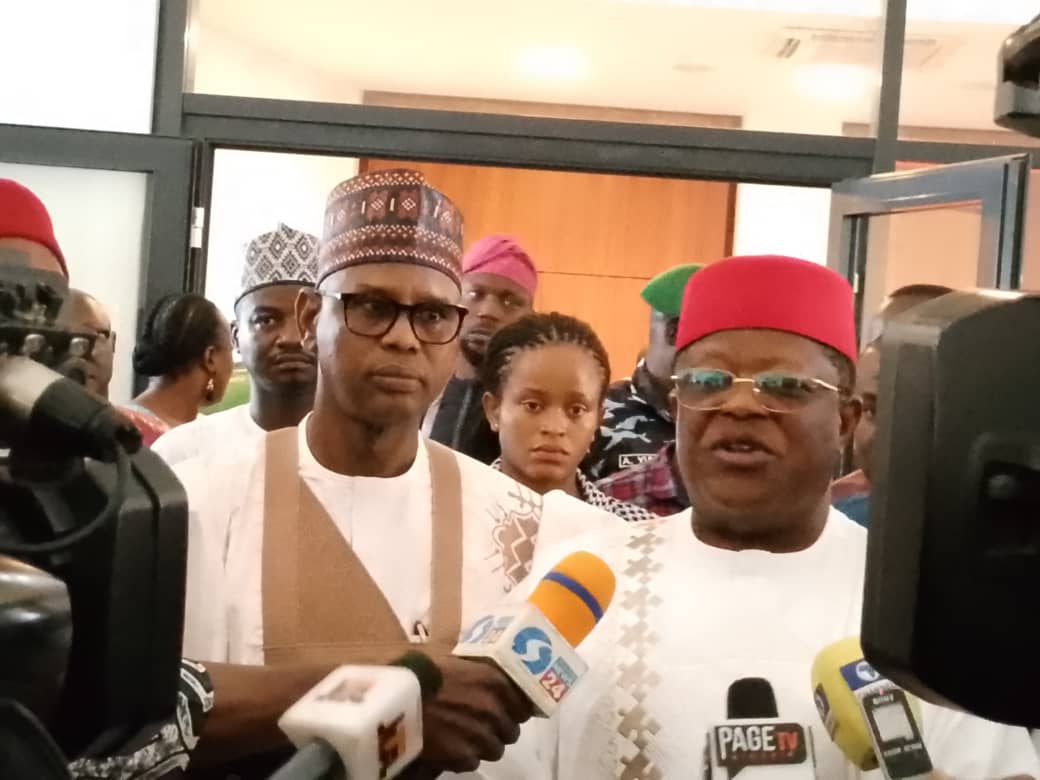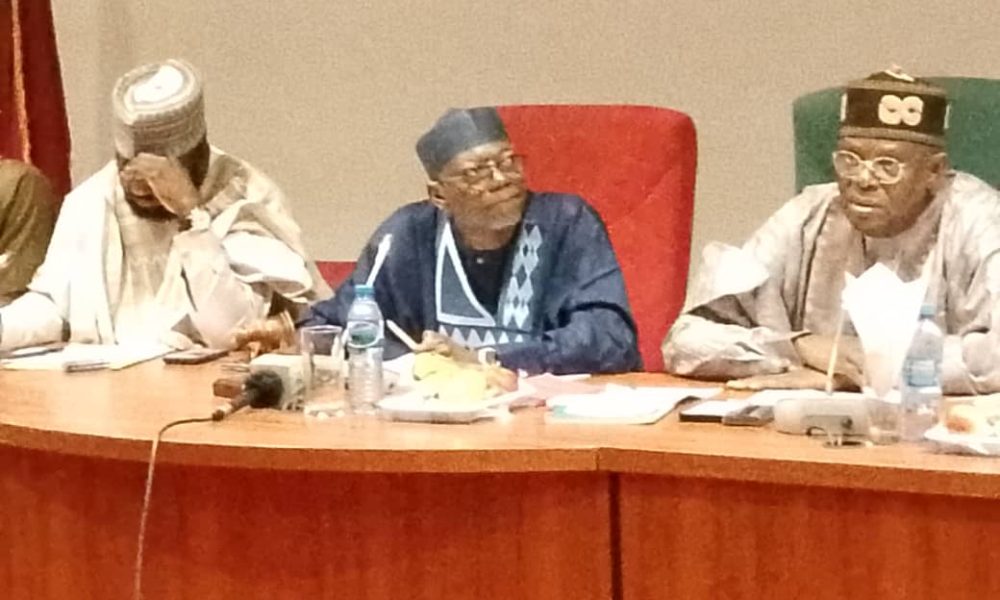2025 Budget Defence: Minister Appeals for Senate Support to Fix 2,064 Road Projects

…… Annual budget allocations alone could resolve Nigeria’s infrastructure challenges
By Fatima Saka
The Minister of Works, Sen. Engr. Nweze David Umahi, has revealed that the president inherited 2,064 road projects valued at approximately $13 trillion.
He emphasized the urgent need for repairs but stressed that this could only be achieved if the president is encouraged to borrow funds to address the inherited infrastructure deficit.
Speaking to journalists after defending the ministry’s 2025 budget before the Senate on Friday in Abuja, Senator Umahi clarified that fixing all the roads at once is unrealistic.
“This is not just about how much is needed; all the roads cannot be fixed in one or two years,” he stated.
He further explained that, based on current market realities, the cost of completing the projects could now be closer to $18 trillion.
“The president, being an economist with vast experience, understands the economic challenges we are facing. He is making efforts to secure loans to fund these projects. However, public perception often misinterprets borrowing as a negative move,” Umahi noted.
He urged both the National Assembly and the public to support the president’s borrowing plan, arguing that road infrastructure is critical for economic growth.
READ ALSO: Strong Political Will Needed to End Open Defecation in Nigeria – FG highlights
2025 Budget Defence: IGP Advocates Removal of Police from Envelope Budgetary System
“Good roads stimulate economic activities. They create jobs, from those selling construction materials like sand and gravel to roadside traders and transporters. Road infrastructure drives economic progress and helps combat hunger,” he said.
Umahi also dismissed the notion that annual budget allocations alone could resolve Nigeria’s infrastructure challenges.
“We cannot rely on yearly budgetary allocations alone to fix our roads. We must explore alternative funding strategies, including borrowing, to ensure sustainable infrastructure development,” he added
The minister’s appeal underscores the administration’s broader economic strategy of leveraging loans to bridge Nigeria’s infrastructure gap while fostering economic growth.





